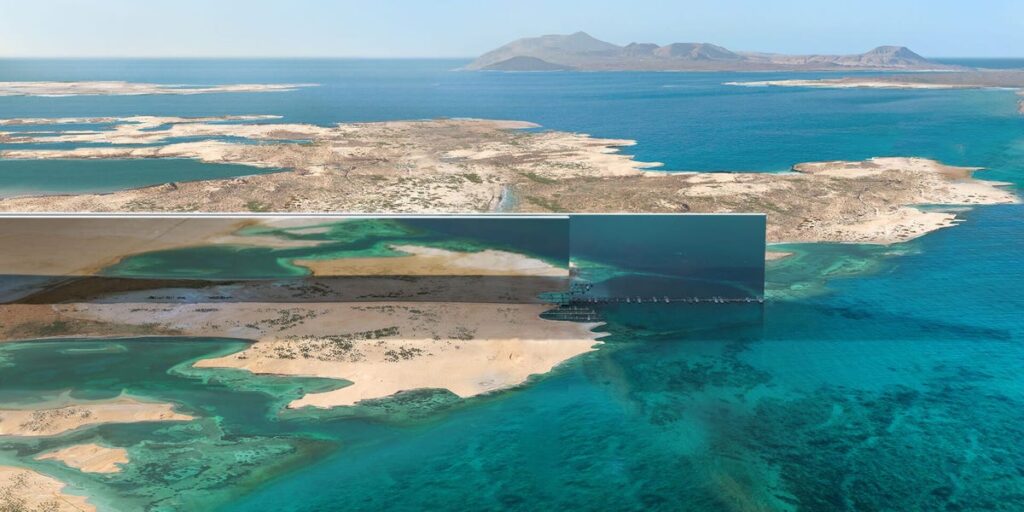A consultant who worked on Saudi Arabia’s Neom megaproject says its centerpiece called The Line will be more of a resort than a functioning city.
Chris Hables Gray, an author and consultant who researched science fiction design aesthetics for The Line in 2021, told Business Insider that the futuristic city was a “resort for 0.01% of the population.”
Although Saudi Arabia has “large amounts of money to spend, there is no chance that it is a real city,” he said.
Gray said Neom’s promotional videos of The Line were meant to be “seductive” and showed “amazingly enticing visions of a future that will never be.”
A resort for ‘really rich people’
Neom officials say The Line will cater to both tourists and permanent residents.
The project is expected to house 300,000 people by 2030, according to a Bloomberg report earlier this year, a downgrade from a previous target of 1.5 million residents.
The Neom project also includes several luxury tourist destinations along the Gulf of Aqaba in a bid to compete with nearby Dubai.
“It was clearly always aimed at being a resort for really rich people,” Gray said. “Cities serve profoundly important functions culturally, economically, spiritually, and politically, and this planned city is serving none of them.”
He added that The Line’s location is “off in the middle of nowhere,” which makes it a good location for a resort but not one that will integrate with the local Indigenous culture.
The Huwaitat tribe, which traditionally lives on lands earmarked for the megacity, were forcibly evicted from their villages to make way for The Line. One villager was reportedly killed for resisting the eviction, and dozens were arrested.
The United Nations has criticized these actions and urged Saudi officials to investigate reports of torture.
Representatives for Neom did not respond to a request for comment from BI.
Sci-fi aesthetics
The Line’s futuristic design appears to borrow heavily from science fiction.
Officials say the city will be contained within twin 1,640-foot-high mirrored skyscrapers positioned 656 feet apart, will host more robots than people, and run solely on renewable energy.
Gray said his role in the project was researching aesthetics from science fiction following a request from very high-level Saudi officials.
He said he was surprised by the large fee paid for 100 hours of concept research work. “The money was unusual for me. They have enough money to just throw at these problems.”
Gray is not the first to question the practicality of The Line.
Andreas Krieg, a Gulf specialist at the Institute of Middle Eastern Studies at King’s College London, called the plans “completely ludicrous,” telling BI that Neom’s centerpiece “has no real purpose.”
Others have questioned if potential residents will even want to live in twin mirrored skyscrapers.
Planners are concerned that The Line’s vertical city concept will not appeal to some potential residents, given the levels of natural light likely to reach the lower levels of the structures, The Wall Street Journal reported earlier this year.
The city’s unusual linear structure has also raised eyebrows. While the concept of linear urban design has existed since the 19th century, few have attempted it.
Read the full article here


